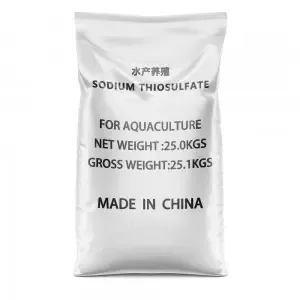



Advancements in Chemical Technologies for Effective Water Treatment Solutions
Chemical Technology in Water Treatment
Water is an essential resource for life, yet the increasing demand for clean freshwater has posed significant challenges globally. Industrial processes, agricultural practices, and urbanization have led to water pollution, making water treatment a vital field for ensuring the safety of our water supply. Chemical technology plays a crucial role in water treatment, offering innovative solutions to purify water and make it safe for consumption and use in various industries.
Chemical Technology in Water Treatment
Another essential aspect of water treatment is disinfection, which is implemented to eliminate harmful microorganisms that may pose health risks. Chlorination is one of the most widespread disinfection methods, where chlorine or chlorine compounds are added to water to kill bacteria, viruses, and other pathogens. Although effective, chlorination can produce harmful byproducts, such as trihalomethanes, which have raised health concerns. As a result, alternative disinfection methods, such as ultraviolet (UV) irradiation and ozonation, are being explored. UV treatment uses light at specific wavelengths to disrupt the DNA of microorganisms, effectively inactivating them without adding chemicals to the water. Ozone, a powerful oxidizing agent, can also effectively disinfect water and decompose into oxygen, leaving no harmful residues.
chem tech water treatment

The removal of heavy metals and nutrients, such as nitrogen and phosphorus, is another critical component of water treatment. These contaminants often stem from industrial effluents and agricultural runoff, leading to serious environmental issues like eutrophication. Chemical precipitation is a commonly employed method to remove heavy metals. By adjusting the pH of the water and introducing specific chemicals, such as lime or sodium sulfide, heavy metals can be precipitated out of the solution and removed. Similarly, nutrient removal can be achieved through chemical processes that encourage precipitation or adsorption, helping to restore balance to aquatic ecosystems.
Furthermore, advances in chemical technology have led to the development of membrane processes, such as reverse osmosis (RO) and nanofiltration. These processes use semi-permeable membranes to separate contaminants from water based on their size and chemical properties. RO is particularly effective in desalination, allowing the removal of salts and contaminants from seawater or brackish water, thus providing a viable solution to freshwater scarcity in arid regions. The integration of chemical agents in these processes can enhance permeate quality and membrane performance, making them more efficient and cost-effective.
As the demand for water continues to grow, innovative chemical technologies are being developed to improve water treatment processes. Nanotechnology, for example, has emerged as a promising field, offering novel materials and methods for contaminant removal and detection. Nanoparticles can be engineered to target specific pollutants, increasing the efficacy of water treatment systems. In addition, smart sensors utilizing chemical technology are being adopted for real-time monitoring of water quality, allowing for prompt detection and remediation of water contamination.
In conclusion, chemical technology is at the forefront of water treatment, addressing some of the most pressing challenges in managing our water resources. Through effective chemical processes such as coagulation, disinfection, precipitation, and advanced filtration techniques, water treatment continues to evolve, ensuring the availability of clean and safe water for future generations. As research and innovation advance, the integration of new chemical technologies will likely revolutionize water treatment, making it more sustainable, efficient, and adaptable to varying water quality demands. The future of water treatment lies in our ability to harness chemical technology to secure this essential resource for all.
-
Why Sodium Persulfate Is Everywhere NowNewsJul.07,2025
-
Why Polyacrylamide Is in High DemandNewsJul.07,2025
-
Understanding Paint Chemicals and Their ApplicationsNewsJul.07,2025
-
Smart Use Of Mining ChemicalsNewsJul.07,2025
-
Practical Uses of Potassium MonopersulfateNewsJul.07,2025
-
Agrochemicals In Real FarmingNewsJul.07,2025
-
Sodium Chlorite Hot UsesNewsJul.01,2025










